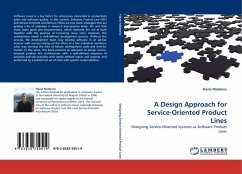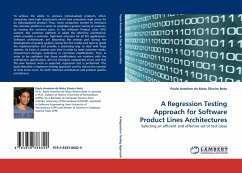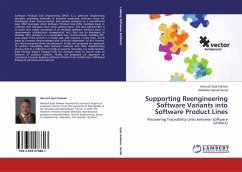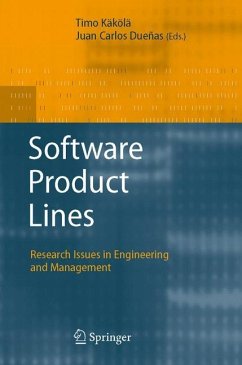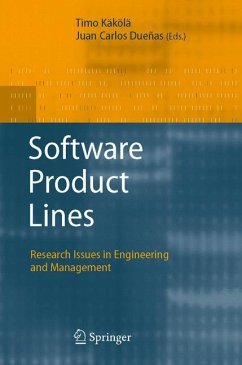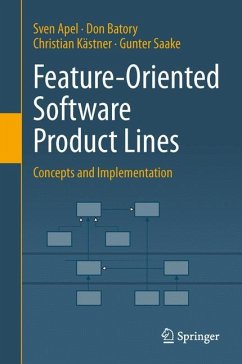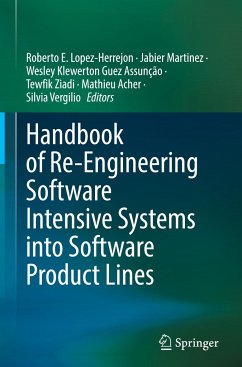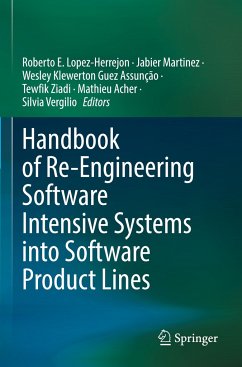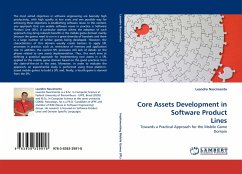
Core Assets Development in Software Product Lines
Towards a Practical Approach for the Mobile Game Domain
Versandkostenfrei!
Versandfertig in 6-10 Tagen
39,99 €
inkl. MwSt.

PAYBACK Punkte
20 °P sammeln!
The most aimed objectives in software engineering are basically high productivity, with high quality at low costs and one possible way for achieving these objectives is establishing software reuse. In this context, one approach that can enable software reuse in practice is Software Product Line (SPL). A particular domain where the adoption of such approach may bring relevant benefits is the mobile game domain mainly because the games need to run in a great diversity of handsets and there is a large number of similar games being developed. However, the characteristics of this domain usually cre...
The most aimed objectives in software engineering are basically high productivity, with high quality at low costs and one possible way for achieving these objectives is establishing software reuse. In this context, one approach that can enable software reuse in practice is Software Product Line (SPL). A particular domain where the adoption of such approach may bring relevant benefits is the mobile game domain mainly because the games need to run in a great diversity of handsets and there is a large number of similar games being developed. However, the characteristics of this domain usually create barriers to apply SPL processes in practice, such as, restrictions of memory and application size. In addition, the current SPL processes still lack of details on the phases related to core assets implementation. Thus, this work aims at defining a practical approach for implementing core assets in a SPL applied to the mobile game domain based on the good practices from the state-of-the-art in the area. Moreover, in order to evaluate the approach, an experimental study is performed using three platform-based mobile games to build a SPL and, finally, a fourth game is derived from the SPL.



